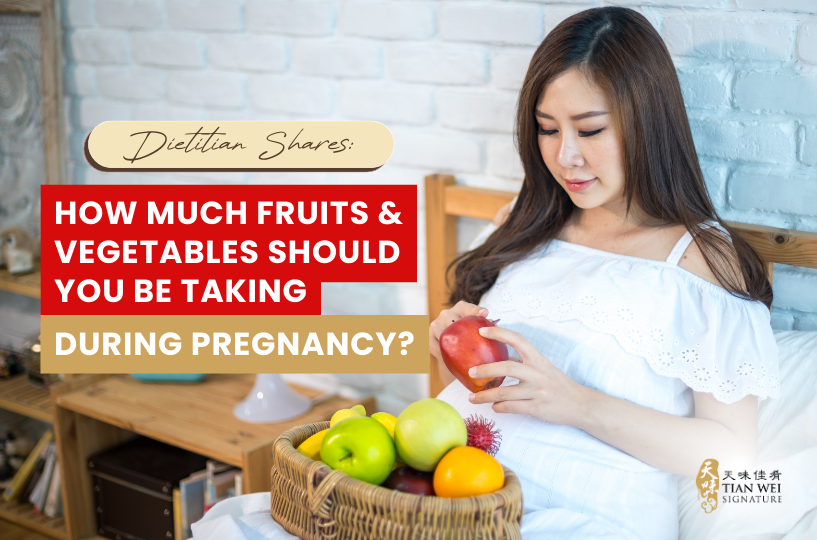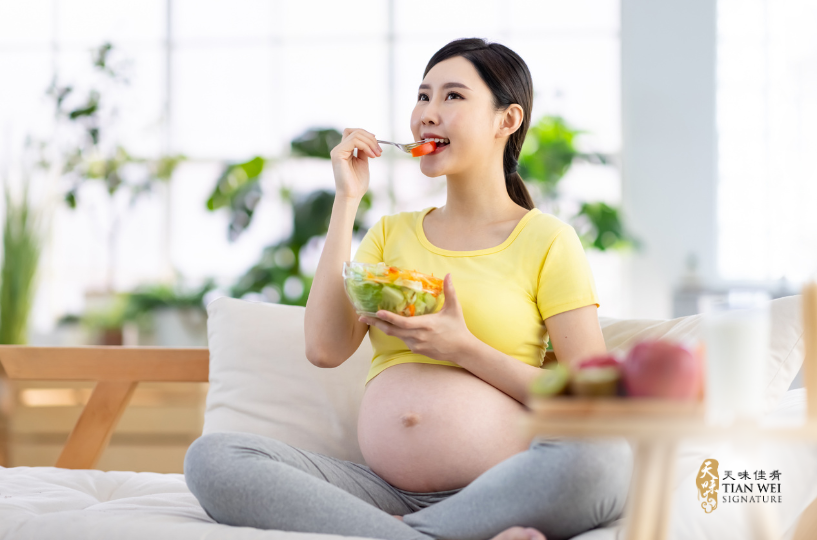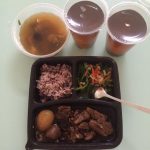81 Tagore Lane, TAG A, #01-11 Singapore 787502 ♦ Reservation : +65 6727 5599
Dietitian Shares: How Much Fruits and Vegetables Should You Be Taking During Pregnancy?

In 2010, the National Nutrition Survey revealed that nine out of ten Singaporeans do not eat more fruits and vegetables. As a response, the Healthy Plate was implemented in 2014 to foster healthier eating patterns among Singaporeans.
Pregnancy is a crucial period in a woman’s life, demanding careful attention to nutritional needs to ensure the health and well-being of both the mother and the developing fetus. Among the various dietary recommendations, eating fruits and vegetables is key in supporting a healthy pregnancy. The benefits of incorporating a diverse range of fruits and vegetables into the maternal diet are multifaceted, ranging from essential vitamins and minerals to fibre and antioxidants.
Why Are Fruits and Vegetables Important?
Fruits and vegetables are key sources of important vitamins and minerals, essential for maintaining overall health, including being major providers of the vitamin C our bodies need. However, research into the impact of vitamin C supplementation on reducing the risk of preterm birth in mothers has shown mixed results. On the other hand, several studies found that consuming fruits and vegetables during pregnancy plays a critical role in lowering the risk of preterm birth, low birth weight, and other pregnancy-related complications.
Besides that, a high intake of fruits and vegetables is also associated with a lower risk of excessive weight gain during pregnancy. Fruits and vegetables are low in calories and high in nutrients, making them ideal for supporting healthy weight gain. This is important as excessive weight gain is one of the main leading causes of gestational diabetes.
Eating enough fruits and vegetables is beneficial for fibre intake and digestive health. The hormonal changes in pregnancy can lead to constipation and digestive discomfort. With their high dietary fibre content, fruits and vegetables are essential for good digestive health, helping to prevent constipation, which is common in pregnancy, and supporting a healthy gut. Similarly, new mothers often experience constipation, especially in the first month after childbirth, due to fluid loss during delivery and reduced movement from pain. As such, the Chinese confinement food in Singapore should include plenty of fruits and vegetables to address these issues.

What are the recommendations?
Although dietary requirements can differ from person to person, the general guidelines suggest that pregnant women should aim for at least five servings of fruits and vegetables daily. This can be a combination of fresh, frozen, or canned produce, emphasising the selection of various colours and kinds. It’s important to consult a healthcare provider for guidance tailored to your specific health conditions and dietary needs.
The Singapore Health Promotion Board also recommends having at least two servings of vegetables and two servings of fruits per day.
Here are some of the examples of what a serving of fruits and vegetables look like:
|
Fruits |
|
|
Vegetables |
|
Research consistently demonstrates that mothers who consume a high amount of fruits and vegetables during pregnancy, such as the Mediterranean diet, are linked with a lower risk of developing gestational diabetes. Additionally, this diet is associated with a lower likelihood of excessive weight gain during pregnancy!
Practical Tips
Follow the Healthy Plate
Half a plate filled with vegetables is considered as two servings of vegetables. This means when you are at the economic rice stall, it is good practice to always pick two different vegetables with 1-2 different types of meat with some rice.
Apart from that, ordering a slice of fruit during morning tea and afternoon tea for a snack can help you achieve your required intake of fruits per day.
Grocery Shopping
It would be good to pick two to three different types of fruits per week. Focus on trying to get two different fruits that you enjoy having. Fruits like bananas, grapes or apples require little preparation before consumption. Thus making these fruits easy to pack, work, and consume as soon as possible.
Incorporating Whole Fruits for Breakfast
You might think, “I’ll just grab a glass of orange juice in the morning! It’s an easy way to get my fruit servings in!”. But fruit juices usually have a lot of sugar and no fibre because they remove the pulp. So, they can give us a quick sugar boost instead of being healthy. Plus, making one cup of juice takes about two to three oranges. Imagine eating all of those at once – you’d feel too full! That’s why drinking fruit juice all the time might not be as good for you as you think.
With some planning, you can easily add whole fruits to your breakfast. You’ve got many quick and healthy choices, like peanut butter on toast with banana or apple slices, overnight oats with berries, or cereal with grapes. The options online are endless.
Conclusion
In conclusion, consuming an adequate amount of fruits and vegetables is paramount during pregnancy for the well-being of both the mother and the developing fetus. These nutrient-rich foods contribute to optimal fetal development, protect against pregnancy complications, and support the overall health of the expecting mother. By prioritising a diverse and balanced diet, pregnant women can ensure they meet their nutritional requirements, laying the foundation for a healthy and successful pregnancy.







